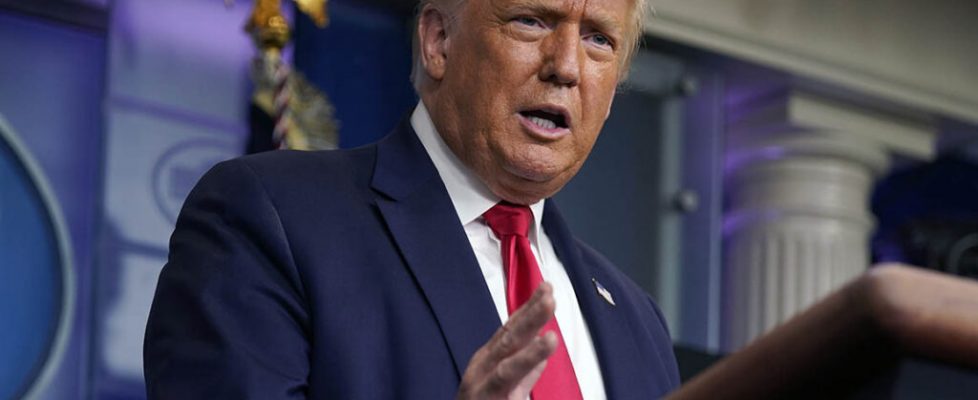Trump signs order aimed at boosting rural health care, telehealth
Trump’s announcement comes as his administration has rolled out multiple health care announcements in recent weeks.
President Donald Trump signed an executive order Monday aimed at boosting struggling health care providers in rural areas, as he also proposed a permanent extension of some telehealth policies that helped fuel virtual care’s explosive growth amid coronavirus lockdowns.
“One of the only good things that we’ve gotten out of this whole horrible situation is telehealth, has been incredible,” Trump said at a Monday press briefing.
Trump’s new executive order, first reported by POLITICO earlier Monday, comes as his administration has rolled out multiple health care announcements in recent weeks, in a pre-election effort to bolster the president’s record on an important issue to voters. These actions have included executive orders aimed at slashing drug prices, though the ambitious plans have limitations and are not expected to take effect before Election Day. Last week, the administration also released a report on surprise medical bills, as it urged Congress to revive bipartisan efforts to pass consumer protections.
Pressed about his lack of a replacement for Obamacare, Trump also has spent days promising to unveil a health plan of his own, though he declined to detail exactly what that plan would do. Trump on Fox News last month promised a “full and complete health care plan” by this past weekend, but it never arrived. On Monday evening, Trump said that a health care plan will be coming by the end of August, though three officials earlier in the day said the administration does not have plans to imminently produce an Obamacare alternative.
Some elements of the rural health plan have been under consideration for more than two years, but the White House budget office balked at proposals to reform hospital payments, fearing that they would be unworkable in practice. Federal health officials retooled the proposals to demonstrate they would save the federal government money.
Under the new plan, the federal Medicare agency will leverage its authority to test new pilot projects that offer financial incentives for rural providers who deliver higher-quality care to patients. Administration officials believe its new financial model will help keep rural hospitals open, after about 130 have closed in the past decade. The program will be optional, according to three sources, who said the new Medicare payment model would be released as soon as this week. According to the executive order, the project will be announced within 30 days.
However, officials have debated the risks of overhauling rural hospital payments, given that the industry is already are under considerable financial pressure and the administration could face political backlash if more hospitals shutter after the White House’s plan takes effect. It’s unclear if any of the changes could be finalized before the election.
On telehealth, the administration will issue a proposed rule to make permanent Medicare payment of the technology for certain health care providers, in an effort to ensure the expansion of virtual care outlasts the pandemic, said two officials. However, a more sweeping extension of pandemic telehealth policies would likely have to come from Congress, which is just beginning to review the issue.
During the height of nationwide shutdowns, Medicare telehealth visits grew from just a few thousand per week to more than 1 million.

